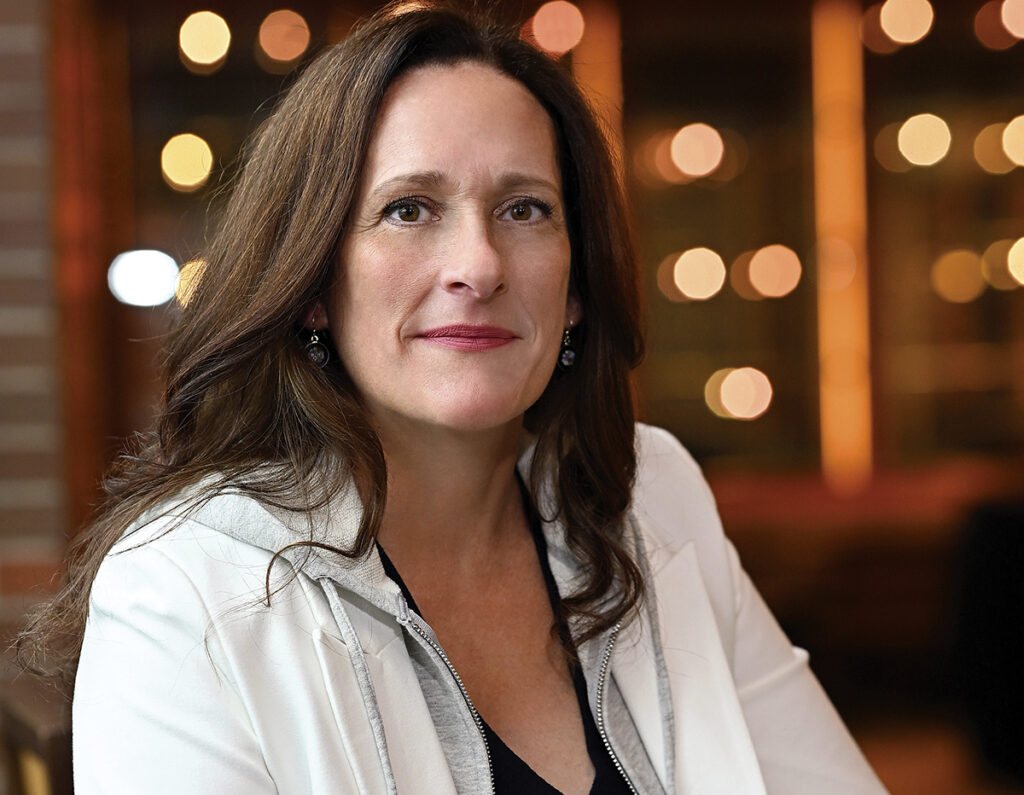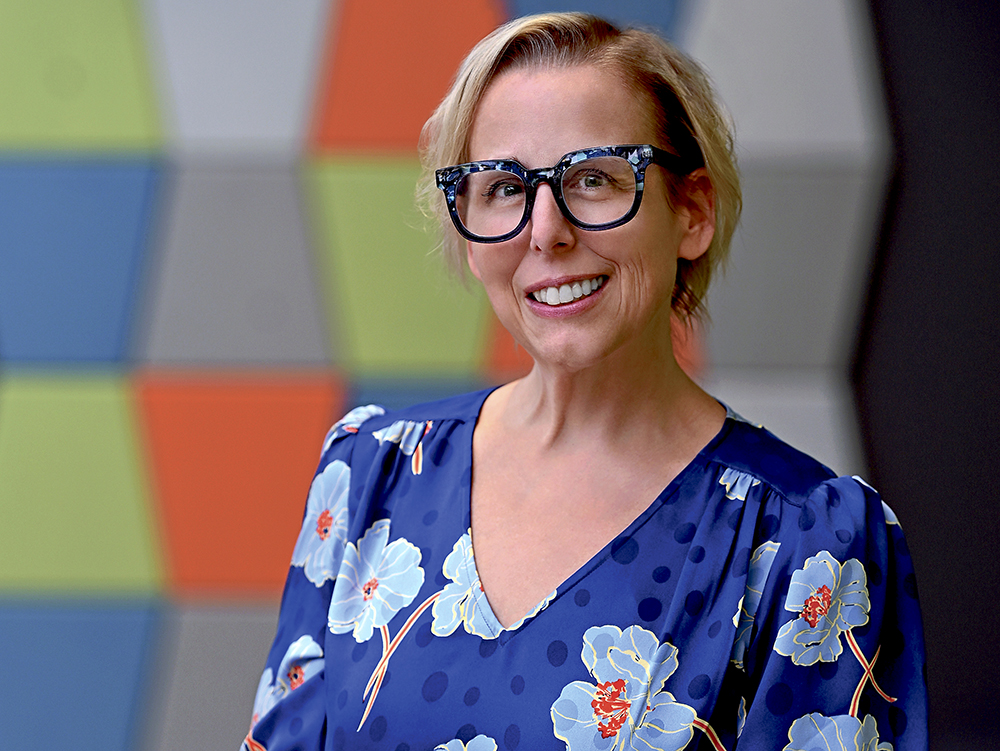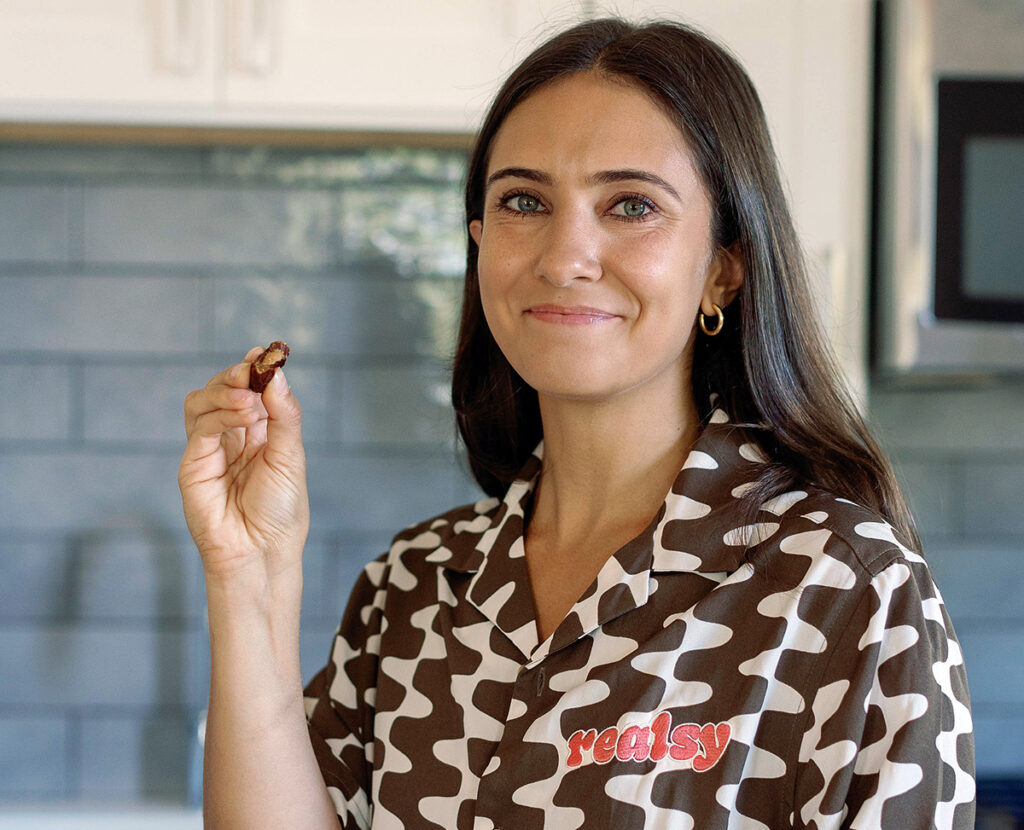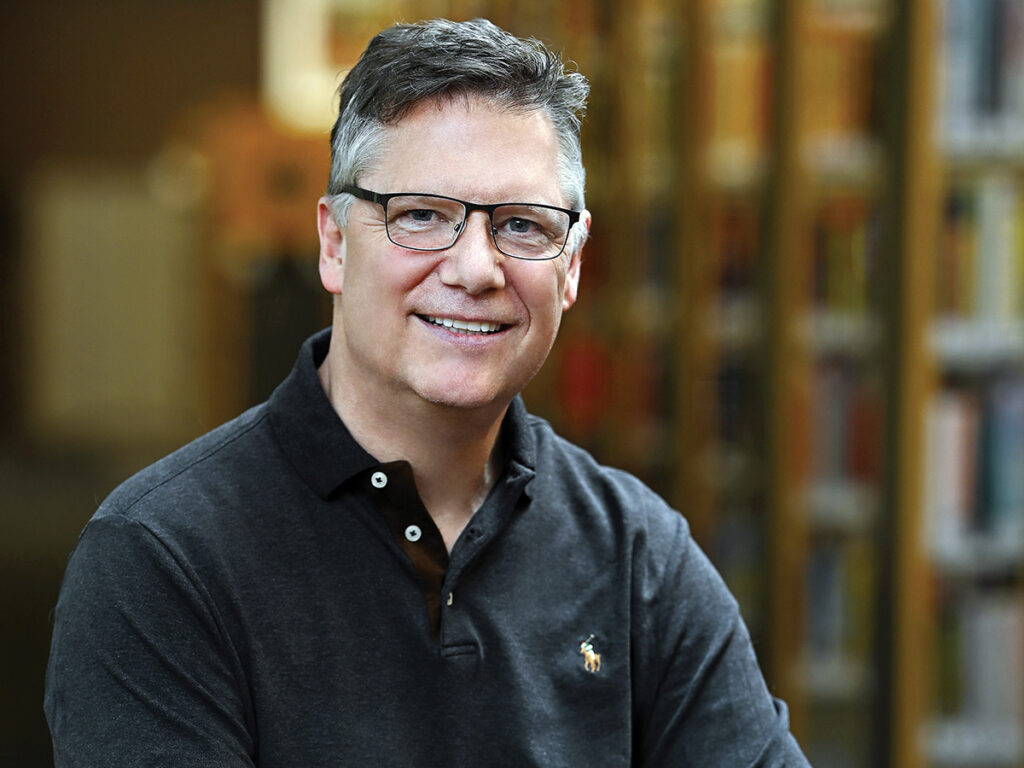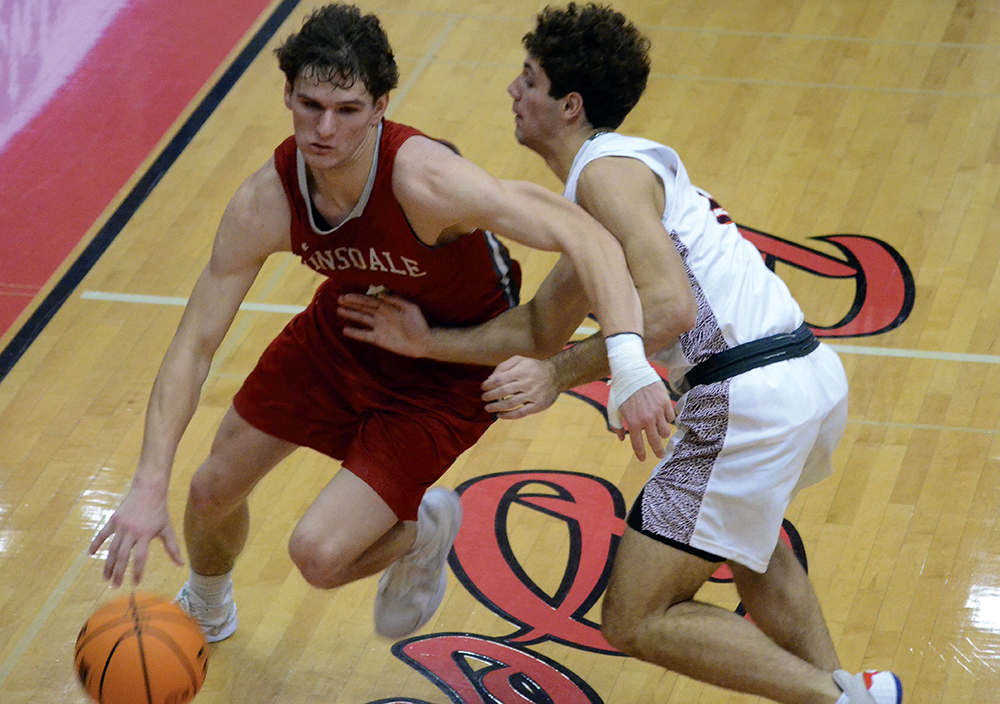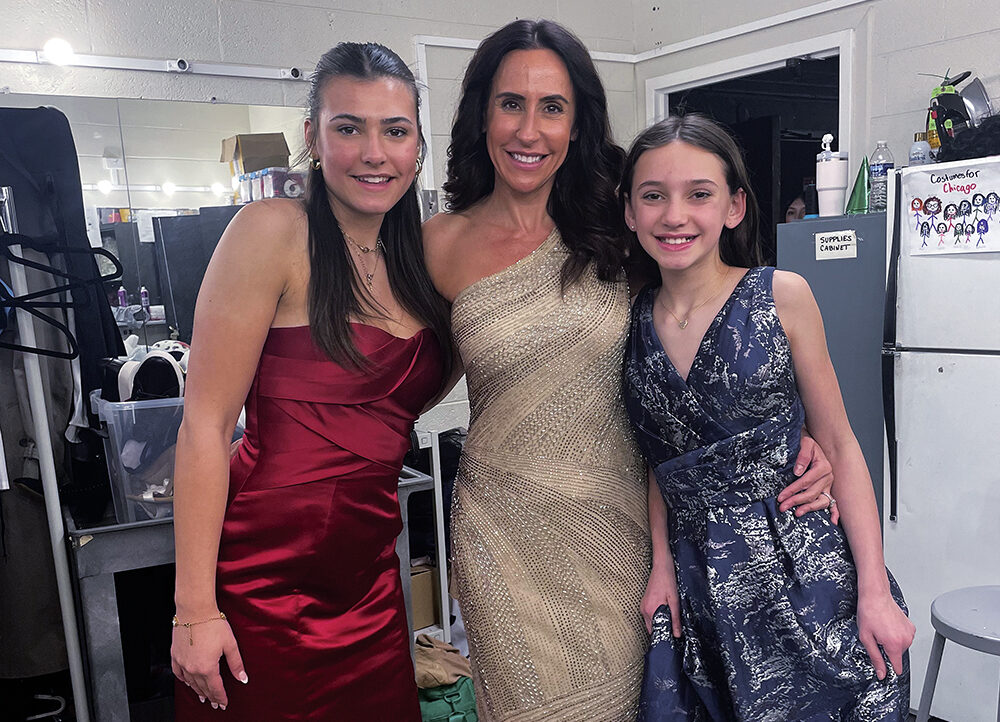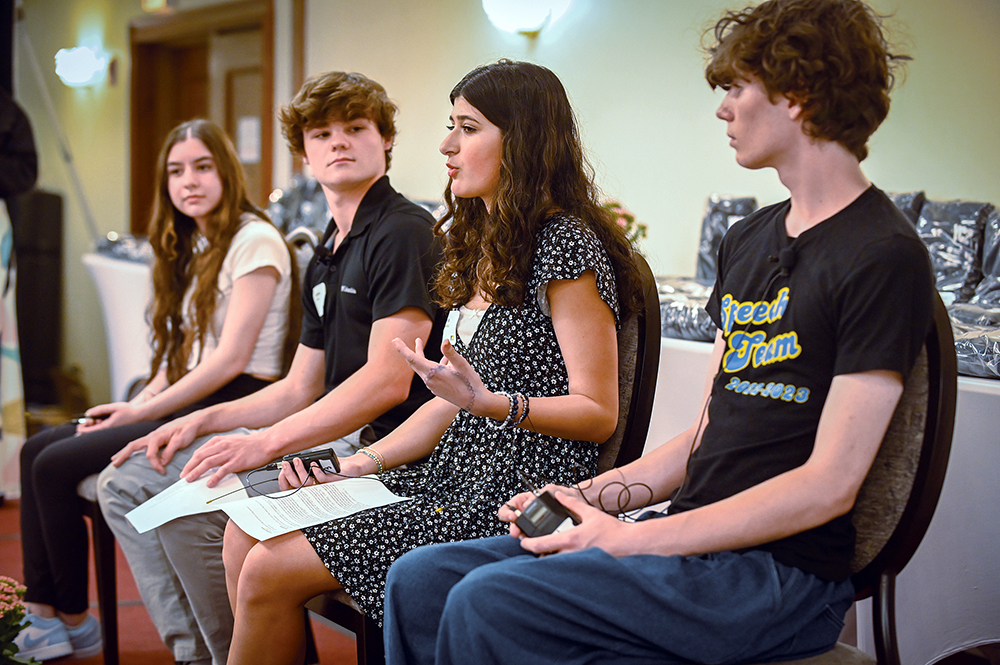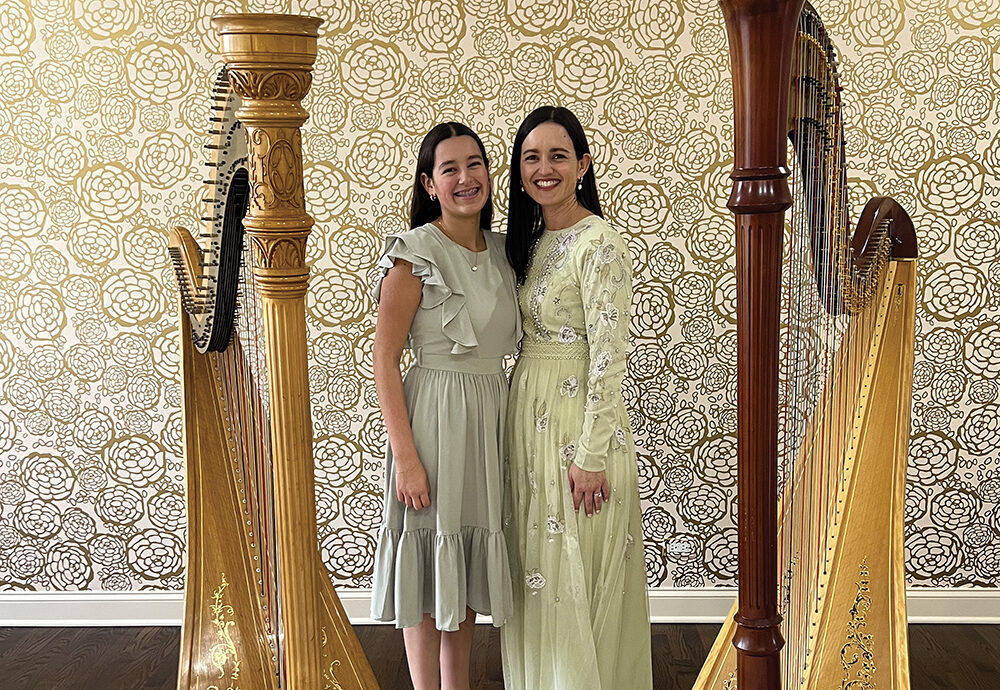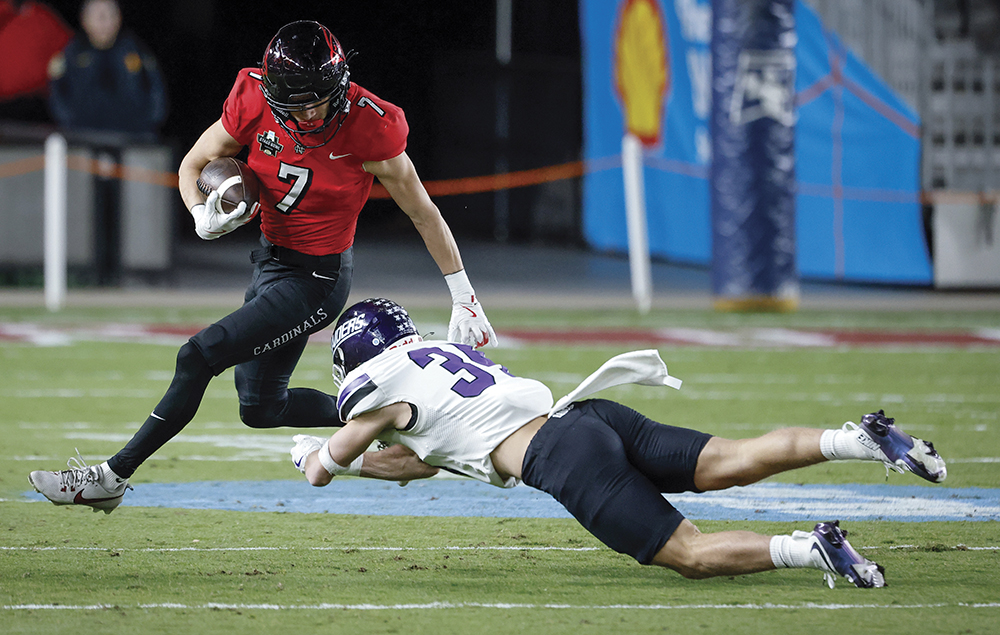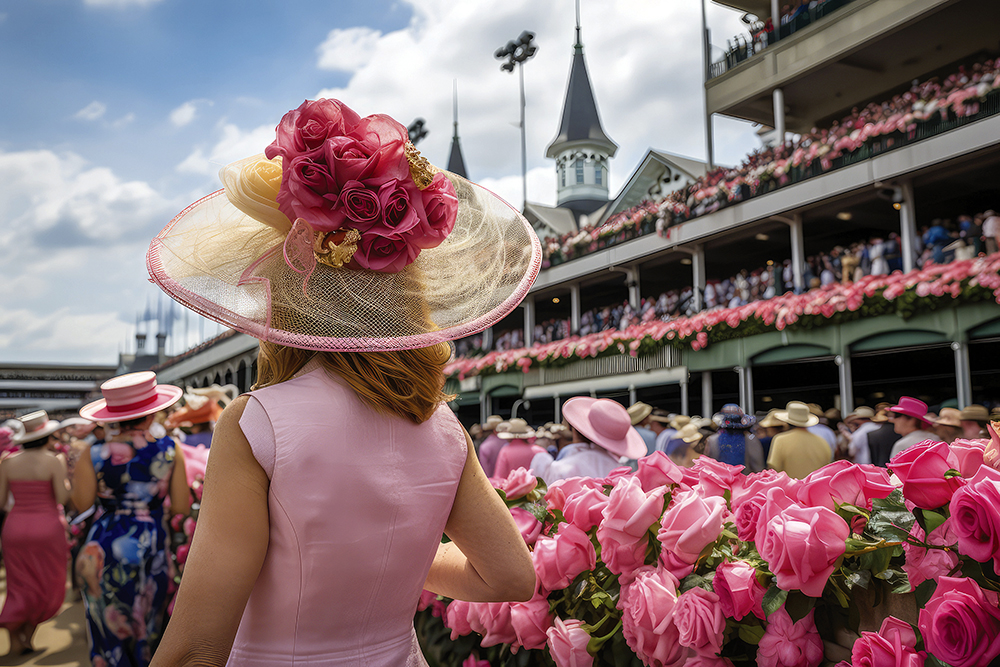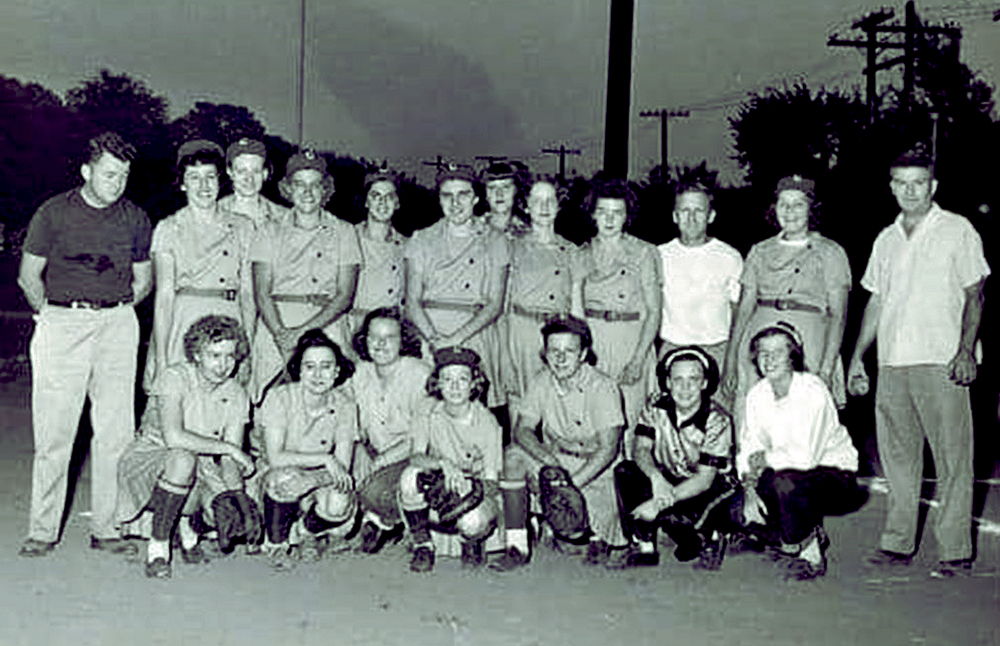Accepted! Despite competitive college admissions, triplets admitted at UofM
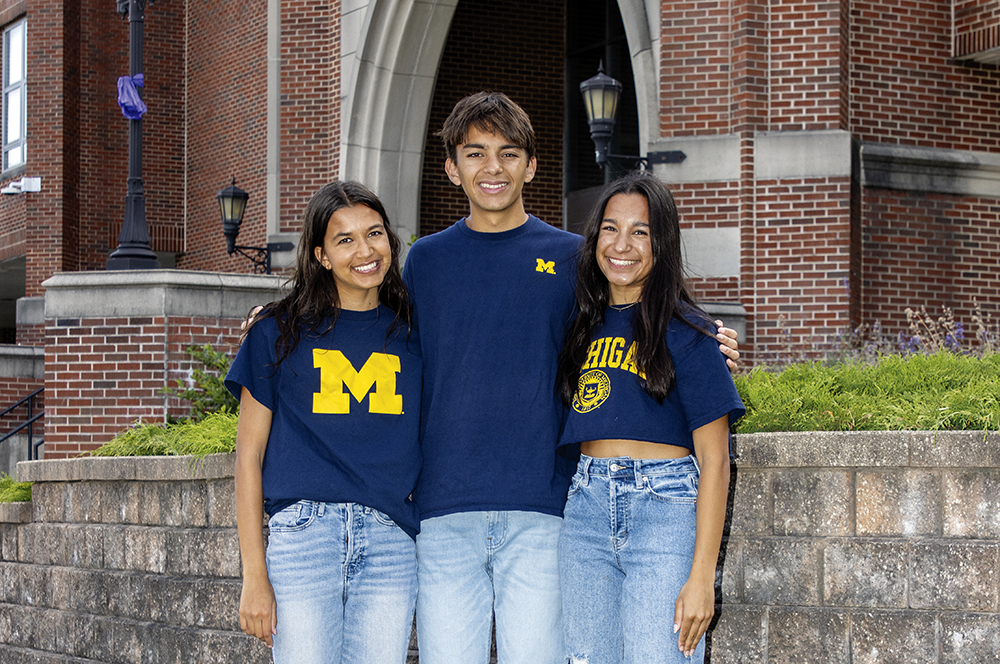
Despite the increasingly competitive college admissions process,
local triplets all admitted at University of Michigan
BY VALERIE HARDY
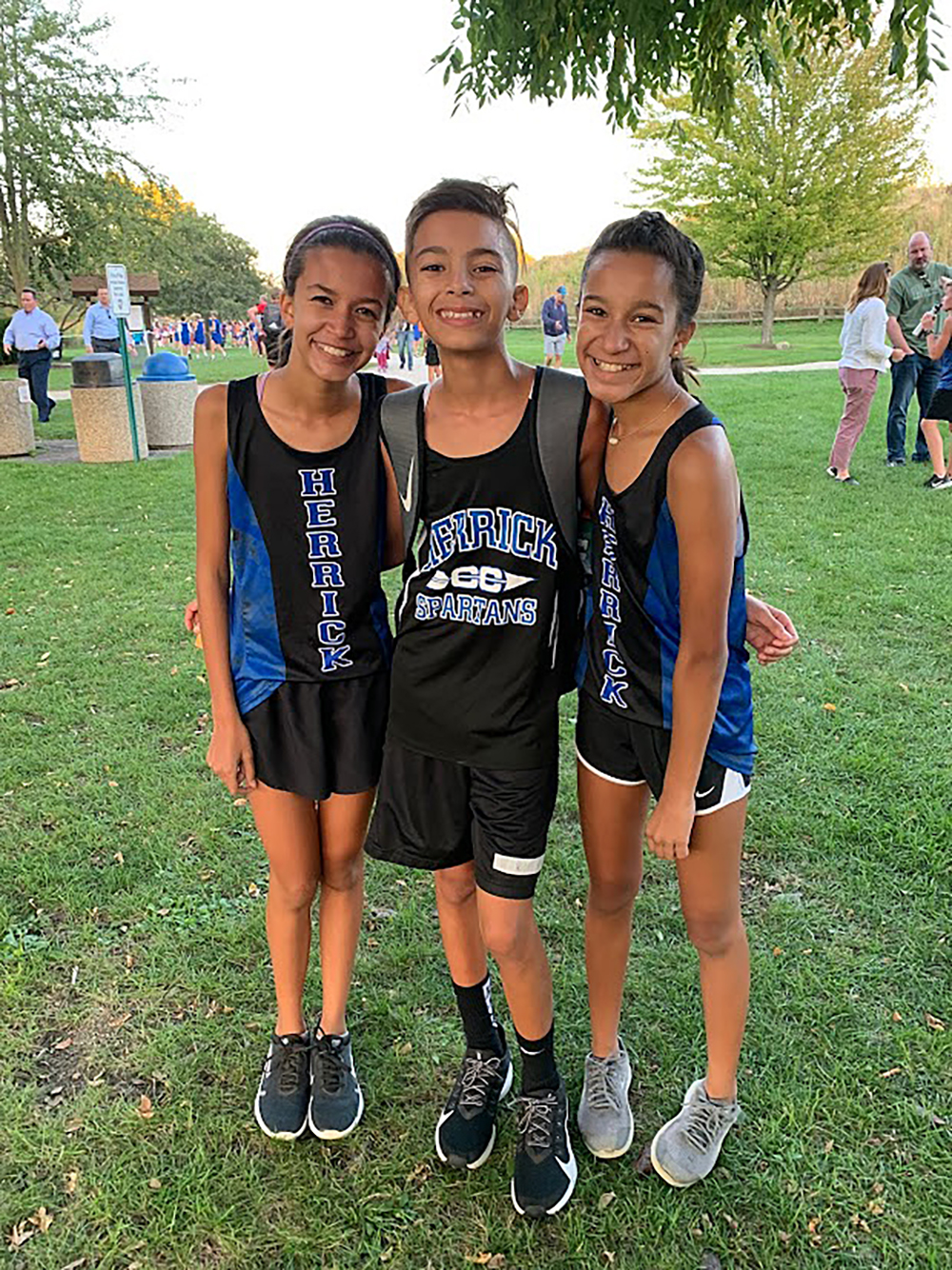
While in middle school at Herrick, the triplets all ran cross country.
The landscape of the college admissions process has changed significantly over the past few decades, becoming increasingly competitive as more and more students apply to attend institutions of higher education. In fact, according to Forbes, in the past year alone, there was a six percent increase in the number of applications submitted through the Common Application.
The Common App, founded in the 1970s to help streamline the college application process, played a significant role in shifting how today’s students apply to college and to how many schools they apply. According to U.S. News & World Report, the Common App, which initially had only 15 member colleges, now features over 500 universities, allowing students to submit their application to additional schools with the simple click of a key.
Contemporary college hopefuls, especially those seeking admission to highly selective universities, often send out applications in droves; applying to 10, 20, or even more schools has become commonplace with the expansion of the Common App. This is a big – and often costly – change from their parents’ generation, where most students applied to only a handful of universities or even just a single school.
“I had basically zero expectations that I would get in. That made it so much better when I opened the letter.”
– Rajan Fisher, on getting accepted to his dream school
Why the drastic difference? Not only did online applications make the process more efficient, rapidly rising college costs – coupled with disproportionate availability of need-based financial aid – has sent students in search of merit money (financial assistance provided based on students’ high school grades, standardized test scores, and/or talents in specialized areas such as the arts, regardless of their families’ income and assets). Accordingly, students “chasing merit” tend to apply to more schools than they otherwise might.
Likewise, an increase in the number of international students attending college in the U.S. has played a part in the rising demand for limited spots in colleges’ incoming freshman classes. Additionally, when many colleges went “test optional” (whereby students were no longer required to submit ACT or SAT scores as part of their application), a new wave of students – who previously deemed certain colleges too far out of reach given their test scores – began applying.
With the abundance of applicants, students with credentials that would have made them shoo-ins for admission not long ago are now viewing the application process more like a lottery, with no sense of whether they will be “accepted” or “rejected” come decision day. To hear about the many nuances of the current college admissions process, just ask almost any parent of a college-bound high school senior or recent graduate. Better yet, ask a parent of multiples, like Anu Fisher, whose triplets graduated from Downers Grove North High School in May.
“From our experience, the college application process is much more intense and competitive than when we applied to college [in the 1990s],” she said. “It’s amazing to see what kids have to do to stick out from their peers and somehow have their essay catch the eye of the admissions officer reviewing their application.”
The Fisher triplets – Malini, Pallavi, and Rajan – managed to stand out, however, achieving no small feat given the current college admission situation: all three were accepted to the University of Michigan-Ann Arbor (Michigan). “I know my kids worked hard, but there is also a bit of luck that this all worked out the way it has,” Anu acknowledged.
The Fishers each excelled while at Downers Grove North. They took rigorous courses (all are AP Scholars with Distinction), were inducted into National Honor Society, and graduated with either high or distinguished honors. They were also involved in numerous athletic, leadership, and service activities, including co-founding the West Suburban Community Pantry’s junior board.
Despite their numerous academic and extracurricular accomplishments, there was no guarantee any – let alone all three – of the triplets would gain admission to Michigan. The university is reported to have accepted fewer than 20 percent of applicants this year, classifying it as a “highly selective” school. Admission for out-of-state students is especially challenging.
Michigan is also among 10 universities recently named by Forbes as the “Public Ivies.” These public post-secondary institutions have been found to yield intelligent and driven students who are highly sought after by employers across industries.
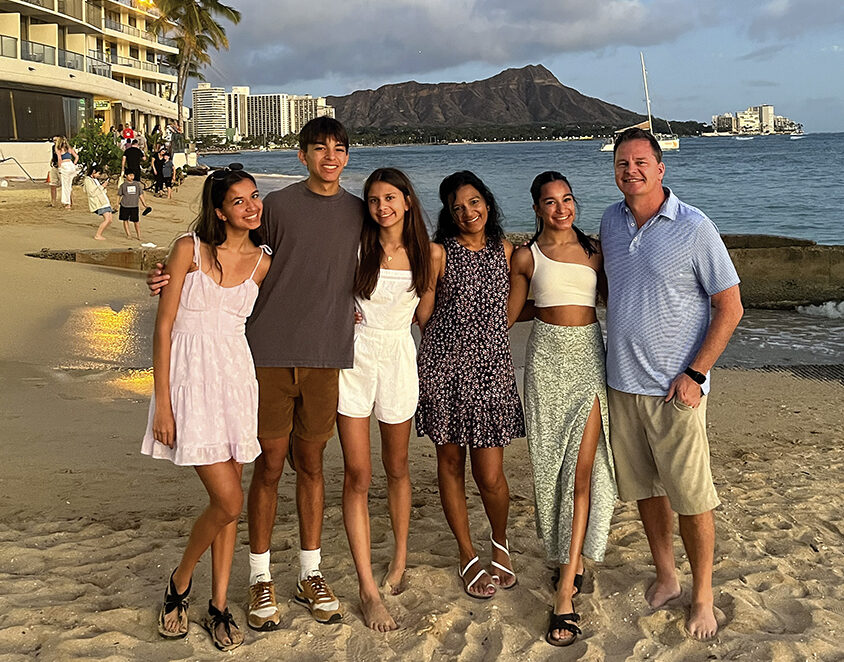
The Fishers spent spring break 2024 in Hawaii, a trip they will always remember because that is where Malini and Pallavi learned of their acceptance to the University of Michigan.
Given its prestige, while the Fishers hoped they would be accepted to Michigan, they planned for the likelihood of not getting in. Each of the triplets applied to nine schools in total, with other Big Ten universities as their primary backup options.
The triplets’ father, Greg Fisher, said he “was very glad to see that despite that uncertainty [regarding admission to Michigan], they still took the chance.”
Taking the chance in applying to Michigan was a no-brainer for Rajan given that it is his “dream school.” Yet, he said, “I had basically zero expectations that I would get in. That made it so much better when I opened the letter” with news of admission.
Michigan appealed to Rajan because of the balance between strong academic offerings and opportunities for fun. “Seeing them win a national championship [also] helped,” he said.
His sisters agreed. Malini said she also selected Michigan to help determine the career path she wants to pursue: “Michigan gives me all the resources I need to figure that out during my time there.”
Pallavi was drawn to Michigan based on the campus being “alive and full of motivated people who want to do great things!”
While the triplets all found what they were looking for in the University of Michigan, attending college together was not something they had planned. “We are all pretty different from each other, which made us assume that separate colleges would make the most sense for us,” Pallavi said.
However, Michigan proving the right fit for each of the triplets was a “happy coincidence,” Pallavi added.
The Fishers also have a younger sister, Priya, who is a rising high school freshman. While it is premature to speculate about whether she will become a Wolverine come her time for college, she plans to “make the most out of high school,” just like her siblings did.
In the meantime, Priya looks forward to Malini, Pallavi, and Rajan’s college experiences, noting that them all attending “UMich makes it 10 times easier to visit them,” which she plans to do often.
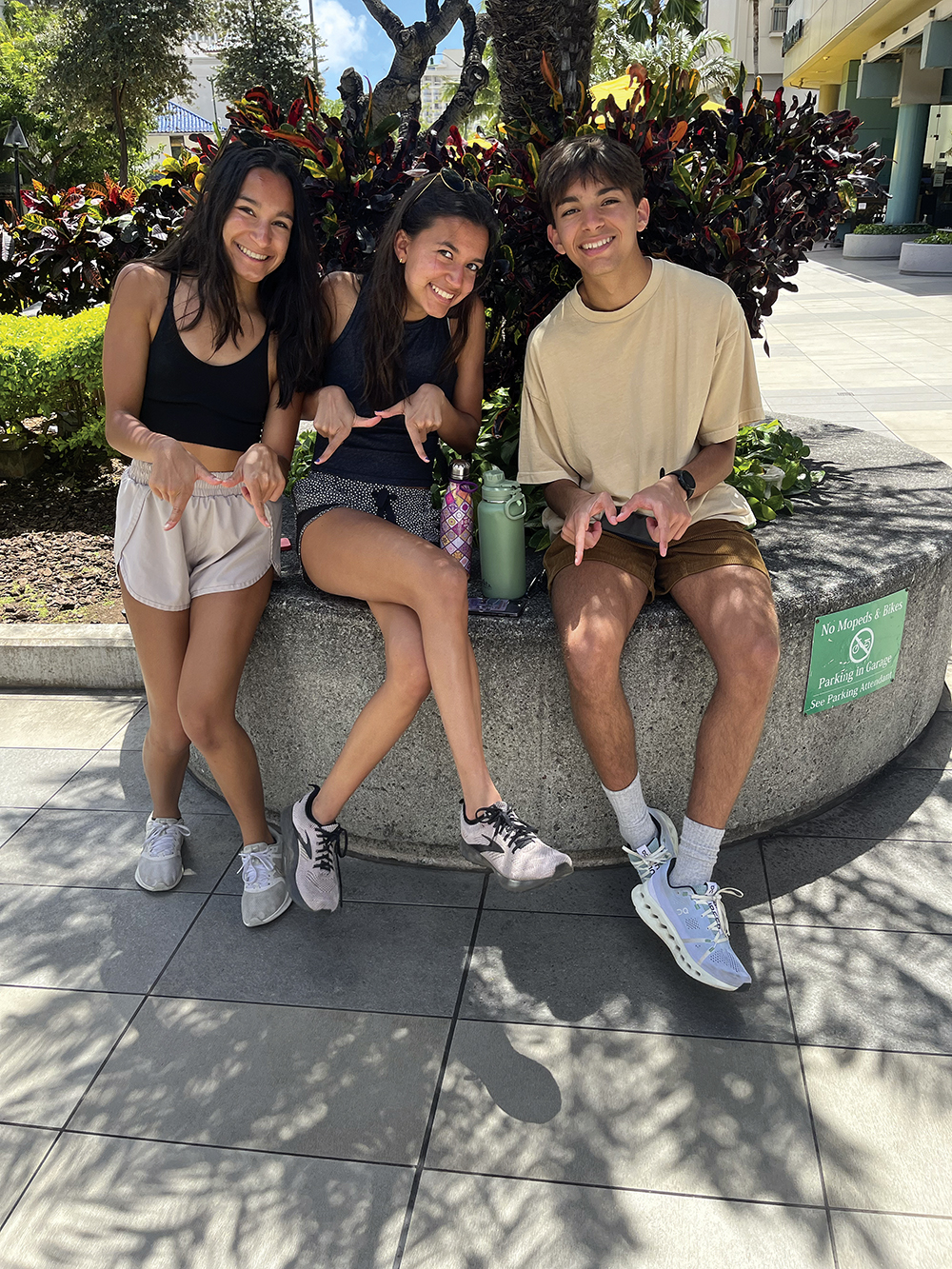
Malini, Pallavi, and Rajan Fisher show their Michigan pride by using their fingers to create the letter “M.”

